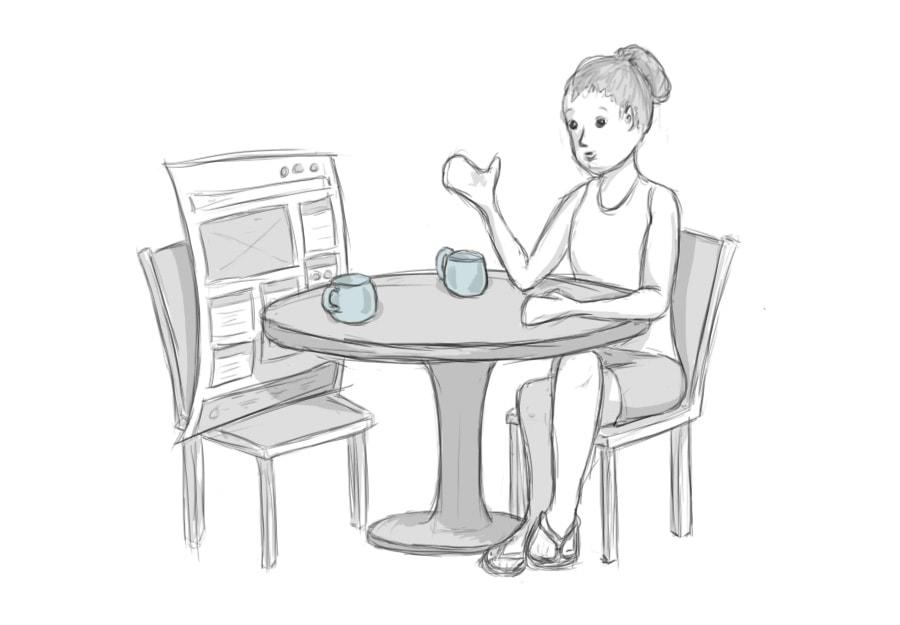
April 18, 2017
Beyond the Screen: Futurism Meets Inclusion

Digital Services Georgia has always been on the cutting edge of government digital service delivery and innovation. Since our team’s inception as the digital services arm for Georgia’s agencies, we have been among the early adopters of open source, cloud hosting, responsive design, accessibility, and SSL at an enterprise level.
Based on the three tenets of our web presence, our goal is a user-first approach that meets constituents where they are. We have never believed in the “build it and they will come” approach, nor do we strive to address all new technology for the sole purpose of calling ourselves innovators. Those motivations tend to overlook key considerations about the user’s needs and miss the point of why we need to build something in the first place. For us, innovation has always been a byproduct of identifying and tackling real problems.
With that in mind, I am thrilled to announce that we will soon be launching a conversational interface pilot to serve information through Amazon Echo devices. We’re calling it Ask GeorgiaGov.
Partnering with Acquia Labs, an innovation pad within our long-term strategic partners at Acquia, we plan to collaborate and create a conversational way for Georgians to interact with state government. Our average user on the GeorgiaGov platform is getting younger, and the devices and platforms consuming our information are growing more diverse. A conversational user interface (CUI) not only keeps pace with trends and the changing expectations of an ever-evolving constituent base, it also allows those with limited abilities to have access to key information with an easy conversation.
Duality of Futurism and Inclusion
Conversational interfaces have long been the dream of future-facing technologists. Futurists look for pre-trends and patterns on the fringe, a space where very few people experiment. Typically these fringe patterns converge into trends, and when trends reach a critical mass of acceptance, they become mainstream. The Graphical User Interface (GUI) stands as a case in point: Once exclusive to military and technology experts, GUI brought computing to mainstream audiences as a global channel for producing, sharing, and consuming information. Conversational interfaces are not mainstream in the government space yet, but we are betting on their promise of convenience and inclusion in the future.
Similarly, touch-friendly devices altered the way we interact with content and proved transformative for users as well as designers and developers. Suddenly we didn't need to rely on interaction elements like cursors and scrollbars. We could touch content and have a direct conversation using our fingers as the input device.
In the same way, conversational interfaces are proving to eliminate the dependency on users’ understanding of a website’s content structure. Users are able to have a direct conversation with devices and formulate questions based on their existing mental models and terminologies.
Conversational interfaces also align with one of our core focuses – accessibility. We have long placed a very deliberate emphasis on connecting Georgians with government information and services in a way that works best for them. Thanks to a pursuit for creating a consistent user experience while embracing responsive design and accessibility, we’re well positioned for this next frontier of digital ecosystems.
Making our content available via new channels like Amazon’s Alexa is an important next step for us. Conversational interfaces are accessible by nature, providing another avenue for people with vision impairments or mobility limitations to interact. It is very important for us to keep in mind that while we set on this futuristic pursuit, we are doing so in a way that includes all Georgians.
We are equally excited that this engagement will benefit the open source community. Part of this project includes a Drupal 7 backport to an Alexa-integration module. Many other states, as well as federal and local government organizations, use Drupal to power their websites. By sponsoring a Drupal 7 backport, we can pave the way for others to offer a similar experience to their users and constituents, meeting our intention to contribute back to the community.
Digital Services Georgia always looks forward to enriching our constituent’s experience in accessing state government information. This pilot project, though enabled just for the Georgia.gov flagship website, is a perfect testing ground to explore what we can accomplish in making existing information conversational. If successful, we will extend it to other agencies so that citizens, regardless of their abilities, can access information in their own way. Just as the touch interfaces changed interaction with visual content, we hope to offer the same level of ease to non-screen devices, extending our commitment to providing interaction without any barriers.
